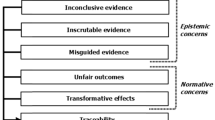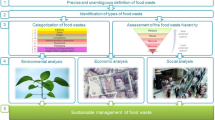Abstract
When making an assessment of animal welfare, it is important to take environmental (housing) or animal-based parameters into account. An alternative approach is to focus on the behavior and appearance of the animal, without making actual measurements or quantifying this. None of these tell the whole story. In this paper, we suggest that it is possible to find common ground between these (seemingly) diametrically opposed positions and argue that this may be the way to deal with the complexity of animal welfare. The model will have to be acceptable for the different parties that will be affected by it and real benefits for the animal should result from it. This will be the basis of a practical ethical approach. All this can be condensed into a model that essentially is made up out of three basic elements: the classical welfare analysis with an existing welfare assessment tool, an assessment of the stockholder, and an implementation of the Free Choice Profiling technique. This new framework does not pretend to be a different or better animal welfare matrix; it is intended to integrate existing knowledge and to provide a practical tool to improve animal welfare. It identifies whether there are welfare problems on a farm, if present whether these problems are caused by the housing system or the stockholder, and what can be done to improve the situation.
Similar content being viewed by others
References
H. Bartussek (1995) Tiergerechtheitsindex Für Mastschweine. TGI 35L/1995-Mastschweine Bundesanstalt für alpenländische Landwirtschaft, BAL Gumpenstein Irdning
H. Bartussek (1999) ArticleTitle“A Review of the Animal Needs Index (ANI) for the Assessment of Animals’ Well-Being in the Housing Systems for Austrian Proprietary Products and Legislation” Livestock Production Science 61 179–192 Occurrence Handle10.1016/S0301-6226(99)00067-6
H. Bartussek (2001) ArticleTitle“An Historical Account of the Development of the Animal Needs Index ANI-35L As Part of the Attempt to Promote and Regulate Farm Animal Welfare in Austria: An Example of the Interaction Between Animal Welfare Science and Society” Acta Agriculturae Scandinavica, Section A: Animal Science Supplement 30 34–41
H. Bartussek Ch. Leeb S. Held (2001) Animal Needs Index for Cattle – ANI 35 L/2000 – Cattle, [BAU 147] Federal Research Institute for Agriculture in Alpine Regions, BAL Gumpenstein Irdning
M. B. M. Bracke B. M. Spruijt J. H. M. Metz W. G. P. Schouten (2002) ArticleTitle“Decision Support System for Overall Welfare Assessment in Pregnant Sows A: Model Structure and Weighting Procedure” Journal of Animal Science 80 1819–1834
M. B. M. Bracke B. M. Spruijt J. H. M. Metz (1999) ArticleTitle“Overall Animal Welfare Assessment Reviewed. Part 2: Assessment Tables and Schemes” Netherlands Journal of Agricultural Science 47 293–305
M. B. M. Bracke (2001) Modeling of Animal Welfare. The Development of a Decision Support System to Assess the Welfare of Pregnant Sows Van Gils B.V Wageningen
M. Kiley-Worthington (1977) Behavioural Problems of Farm Animals Oriel Press Stocksfield
H. Linstone M. Turoff (1975) The Delphi-method: Techniques and Applications Addison-Wesley Reading
Lips, D. (2004), Op zoek naar een meer diervriendelijke veehouderij in de 21ste eeuw. Aanzet tot het ontwikkelen van win-winsituaties voor dier en veehouder, [ Looking for a More Animal Friendly Livestock Production in the 21st century. Start of the Development of Win–Win Situations for Animal and Stockholder], PhD dissertation 609, Faculteit Landbouwkundige en Toegepaste Biologische Wetenschappen, Leuven: Katholieke Universiteit Leuven.
L. J. Rennie V. A. Bowell J. M. Dearing M. J. Haskell A. B. Lawrence (2003) ArticleTitle“A Study of Three Methods used to Assess stockmanship on Commercial Diary Farms: Can these become Effective Welfare Assessment Techniques?” Animal Welfare 12 591–597
SCAHAW (Scientific Committee on Animal Health and Animal Welfare) (2001), The Welfare of Cattle Kept for Beef Production, Brussels: European Commission. Adopted 25 April 2001.
H. Spoolder G. Rosa ParticleDe B. Hörning S. Waiblinger F. Wemelsfelder (2003) ArticleTitle“Integrating Parameters to Assess On-Farm Welfare” Animal Welfare 12 529–534
A. Sundrum R. Andersson G. Postler (1994) Tiergerechtheitsindex – 200 1994. Ein Leitfaden zur Beurteilung von Haltungssystemen für Rinder, Kälber, Legehenen und Schweine Verlag Köllen Bonn
Webster, A. J. F. and D. C. J. Main (2003), Proceedings of the 2nd International Workshop on the Assessment of Animal Welfare at Farm and Group Level – Special Issue, Animal Welfare 12(4).
F. Wemelsfelder (1997) “Investigating the Animals’ Point of View. An Inquiry into a Subject-Based Method of Measurement in the Field of Animal Welfare” M. Dol S. Kasanmoentalib S. Lijmbach E. Rivas R. Bos Particlevan den (Eds) Animal Consciousness and Animal Ethics Van Gorcum Assen 73–89
F. Wemelsfelder T. E. A. Hunter A. B. Lawrence M. T. Mendl (1998) “The Inter- and Intra-Observer Reliability of Spontaneous Qualitative Assessment of Pig Behavior” I. Veissier A. Boissy (Eds) Proceedings of the 32nd Congress of the International Society for applied Ethology INRA Clermont-Ferrant 63–75
F. Wemelsfelder T. E. A. Hunter M. T. Mendl A. B. Lawrence (2000) ArticleTitle“The Spontaneous Qualitative Assessment of Behavioral Expressions in Pigs: First Explorations of a Novel Methodology for Integrative Animal Welfare Measurement” Applied Animal Behavior Science 67 193–215
F. Wemelsfelder T. E. A. Hunter M. T. Mendl A. B. Lawrence (2001) ArticleTitle“Assessing the ‘Whole Animal’: A Free Choice Profiling Approach” Animal Behavior 62 209–220 Occurrence Handle10.1006/anbe.2001.1741
Author information
Authors and Affiliations
Corresponding author
Rights and permissions
About this article
Cite this article
Aerts, S., Lips, D., Spencer, S. et al. A New Framework for the Assessment of Animal Welfare: Integrating Existing Knowledge from a Practical Ethics Perspective. J Agric Environ Ethics 19, 67–76 (2006). https://doi.org/10.1007/s10806-005-4376-y
Accepted:
Issue Date:
DOI: https://doi.org/10.1007/s10806-005-4376-y




